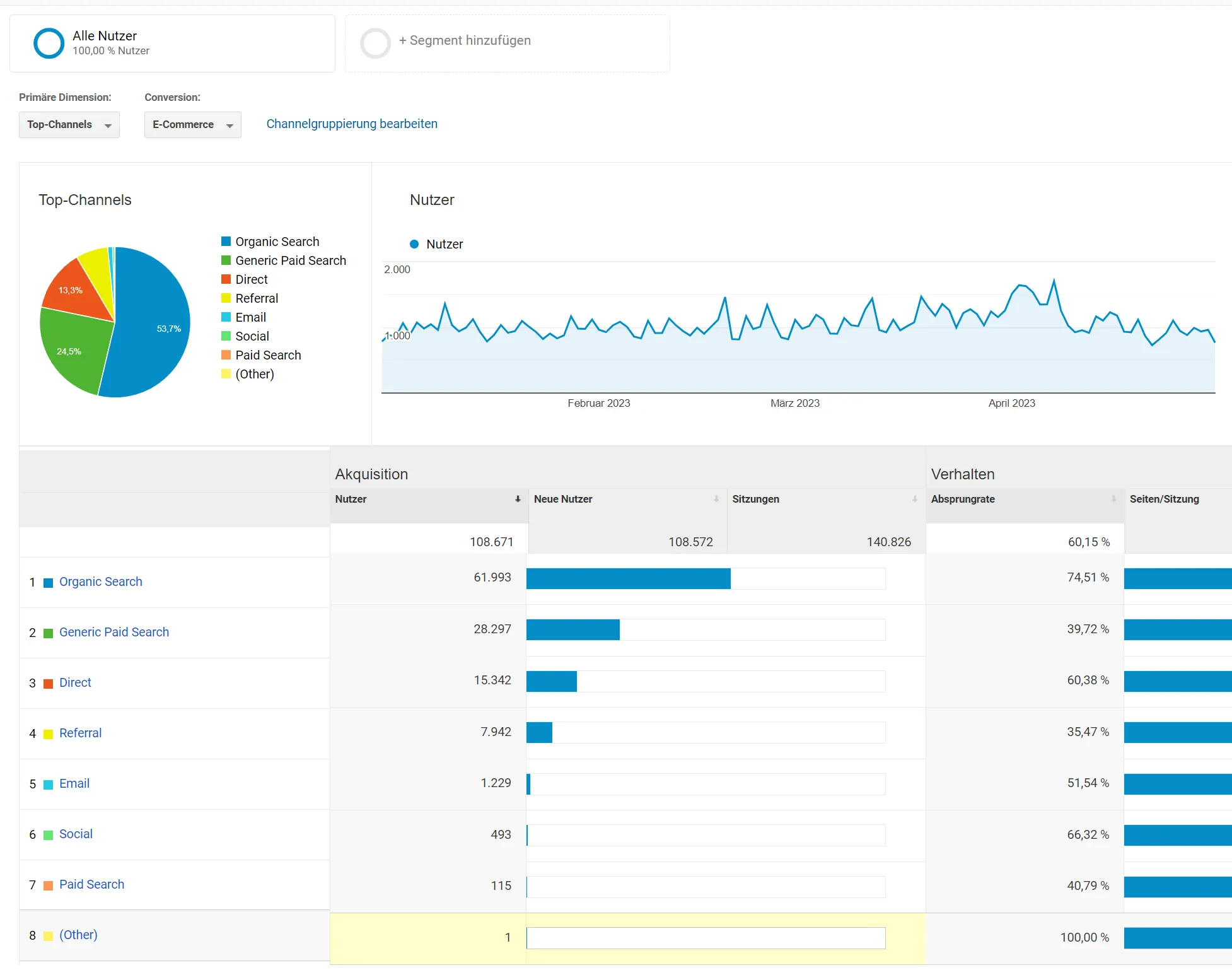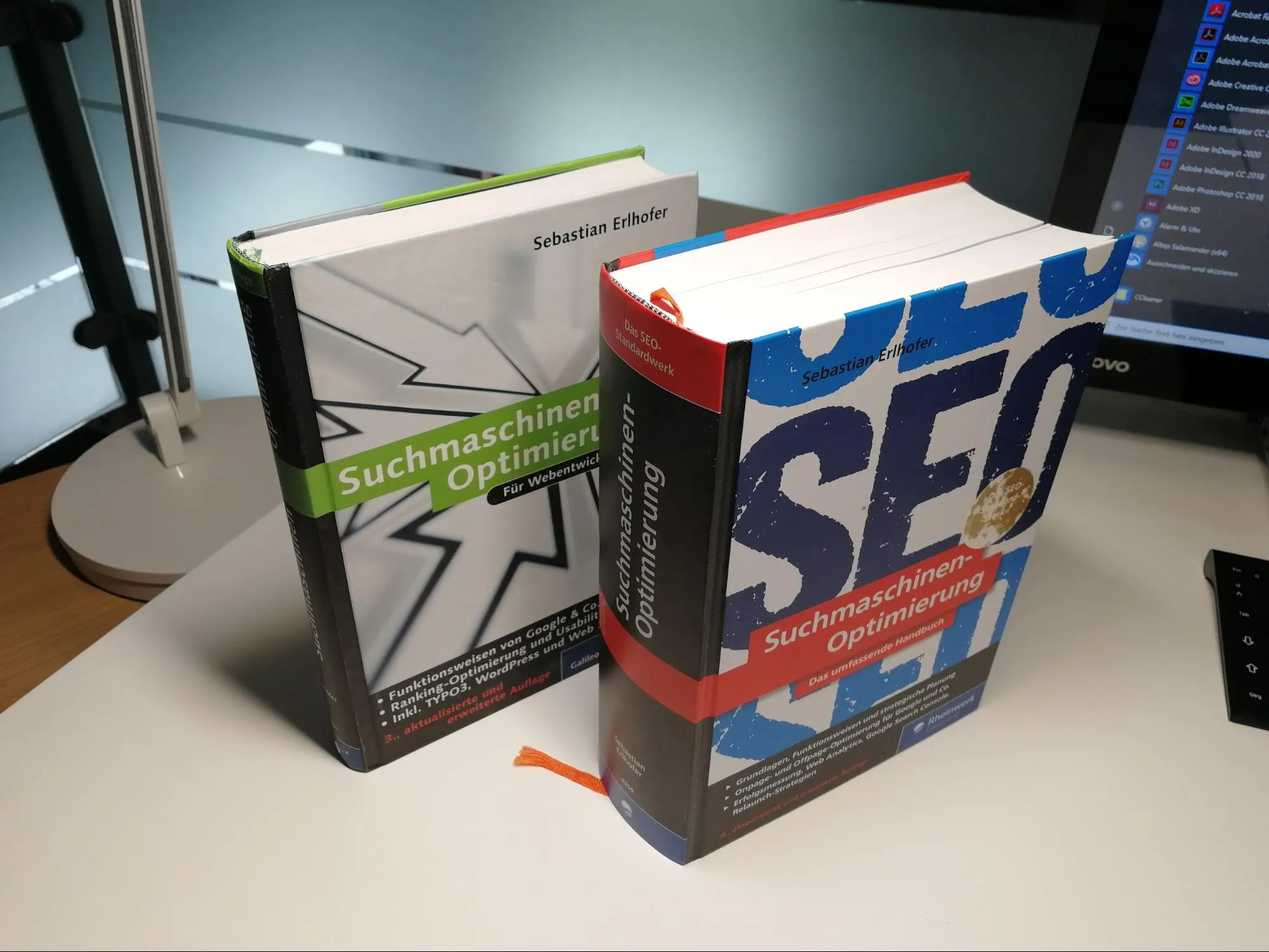Search engine optimization is part of online marketing and is primarily concerned with the preparation of website structures and content to meet the requirements of search engines. The abbreviated form SEO (search engine optimization) is also often used.
For website operators, the search engine optimization of websites is mainly based on the specifications and ranking factors of Google, as it is by far the most widely used search engine in Germany and the main traffic of many websites comes mainly from Google search results. With a market share of around 85.5 percent, Google is the most popular search engine in the world in terms of Page Views (as at March 2023). In the German search engine market, Google is the market leader in both desktop (80.42%) and mobile searches (96.82%). Source: Statista.
Here is a screenshot of an online store, for example, which contains over 53 percent of all hits via search queries from Google. If the ad campaigns were excluded with 24 percent, the relevance of Google for visitor acquisition would even be 77 percent of all hits.

It is therefore important for every website operator to
- fulfill the technical requirements for the search engine bots to have access to the website content in order to index it
- make it easy and clear for the search engine robots to understand which topics the website content deals with
- make it clear to the search engine bots that your content is highly relevant to certain topics/suche queries by optimizing content for keywords
Depending on the value of a website, a search entry is placed in the SERPs. SERP is an abbreviation for search engine result pages, where websites with suitable content are listed in descending order of relevance to the search query.
The specific listing is influenced by over 200 ranking factors, many of which are bundled into larger ranking priorities such as "Mobile first", "User & Page Experience" and "User Signals".
There are also other correlations that influence the ranking in the SERPs, such as domain authority, which is largely dependent on the websites linking to your website. Measures to increase domain authority and link building are called off-page optimization, as they take place outside the actual website. All measures that take place directly on the website to improve the ranking in the SERPs are called on-page optimization.
As a marketing manager, it is important to understand that Google as a search engine is one of the most elementary traffic sources of all and that the target customer's path from search to conversion on the target page is influenced by several touchpoints:
- the search input: what are the keywords that the target group uses
- the SERPs: what influences (positively) your own placement in the search results
- the snippet: how click-stimulating is your own search result compared to the competition
- the target page: does the target customer find what they expect?
- the conversion: is the user experience and the offer so appealing that the desired behavior is triggered by the target customer?

Search engine optimization is a comprehensive and complex subject area. This picture shows the book "Search Engine Optimization" by Sebastian Erlhofer. On the left is the 2007 version with the 3rd edition, which comprises 472 pages, on the right is the 2018 version with the 9th edition and 1070 pages. The 11th edition from 2023 already has 1232 pages. This shows just how broad and in-depth this topic can be. This standard work is intended for those whose daily work is professional search engine optimization. This book also addresses developers who need a detailed explanation of certain topics in search engine optimization.
For marketing employees, a basic knowledge of SEO and related aspects such as user experience is a prerequisite for competent decisions and goal-oriented work. The following explanations are intended to provide you with this basic knowledge. It is clear that many topics can only be touched on. For certain practical applications, you will therefore need to delve deeper into one topic or another, whether through a standard work such as Sebastian Erlhofer's or through Google research or other sources of knowledge.

